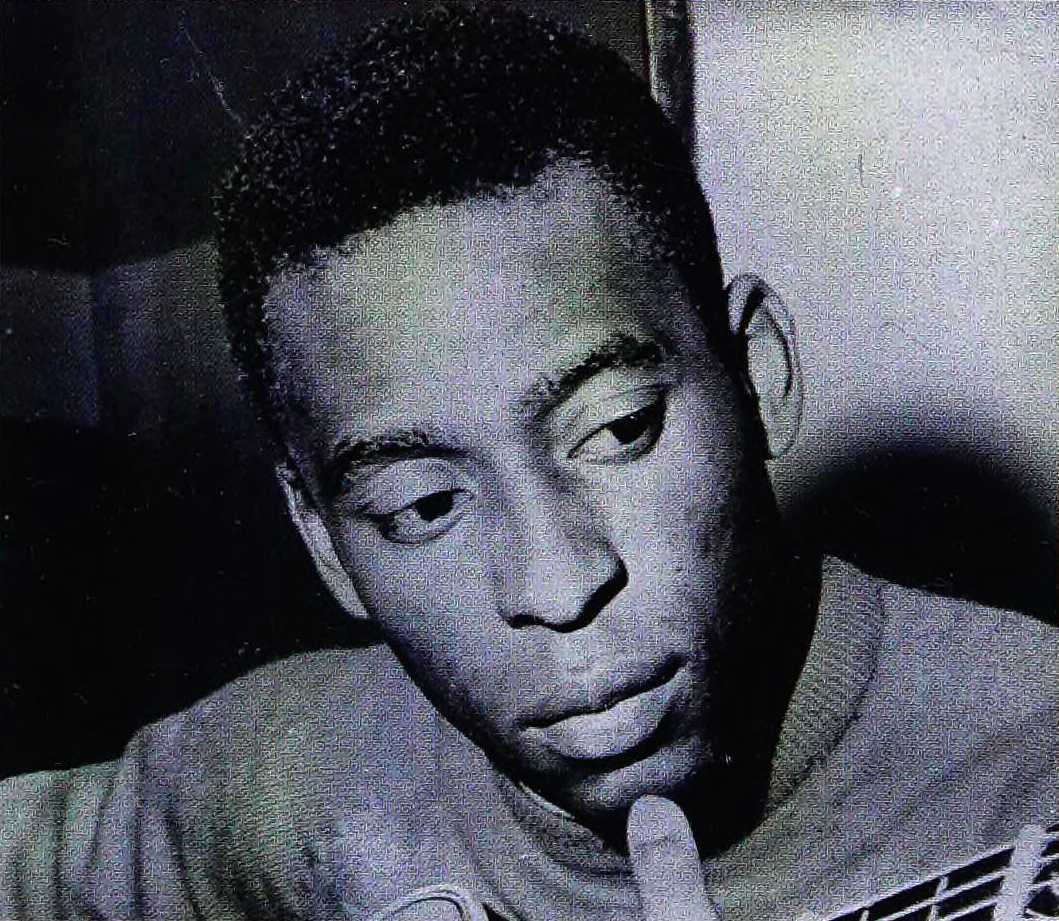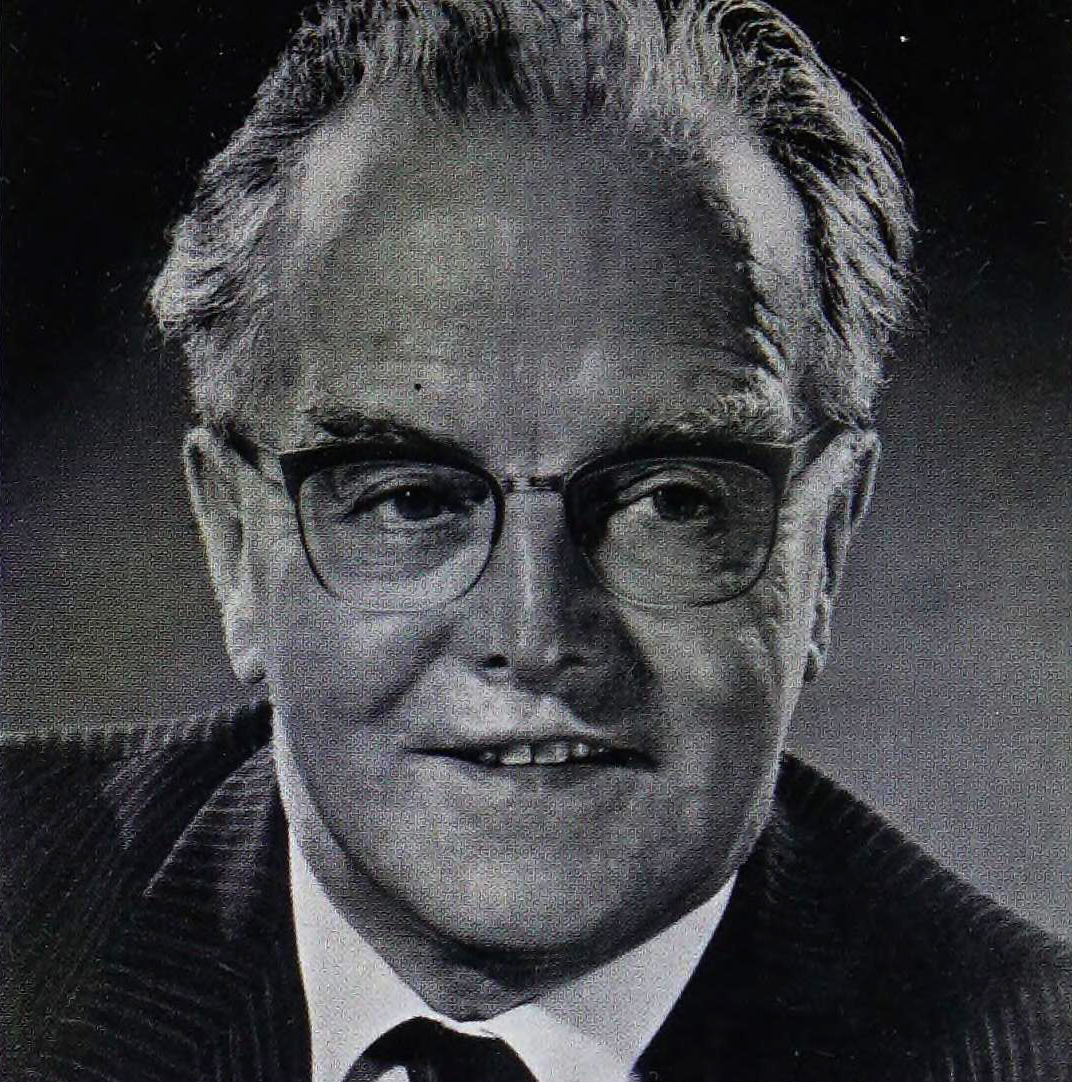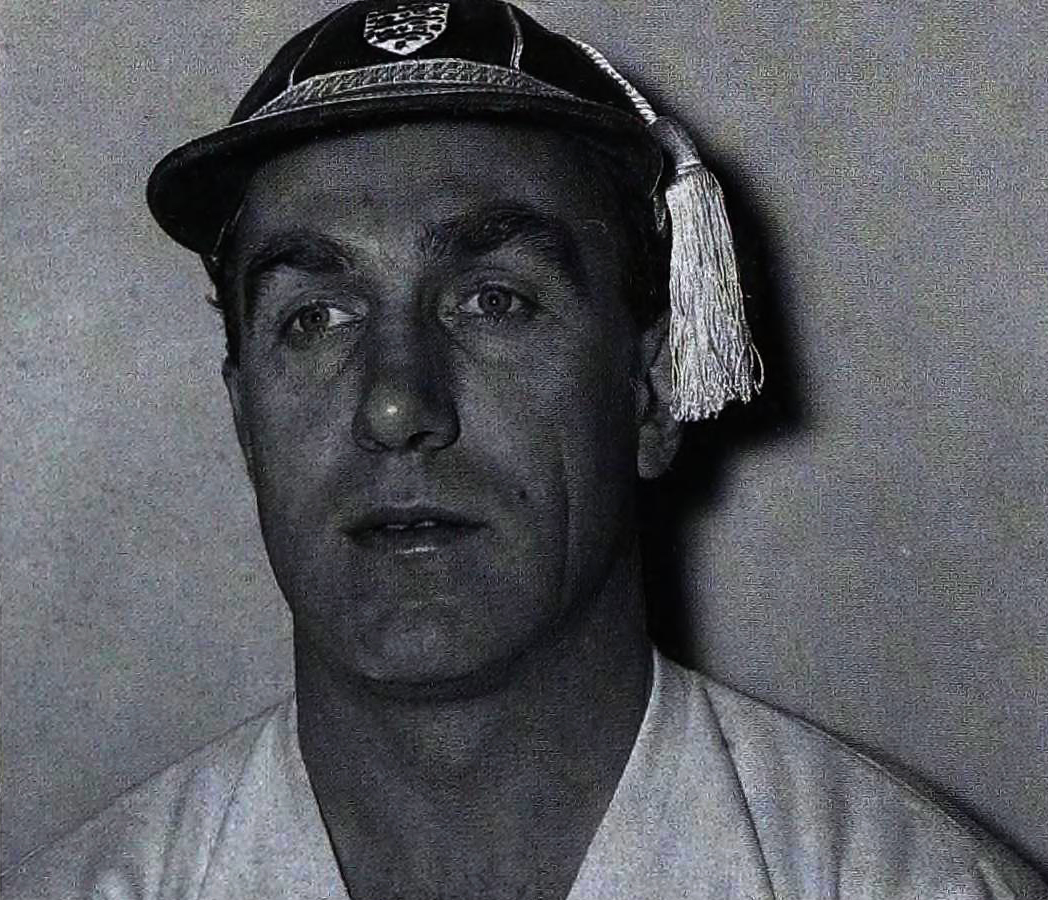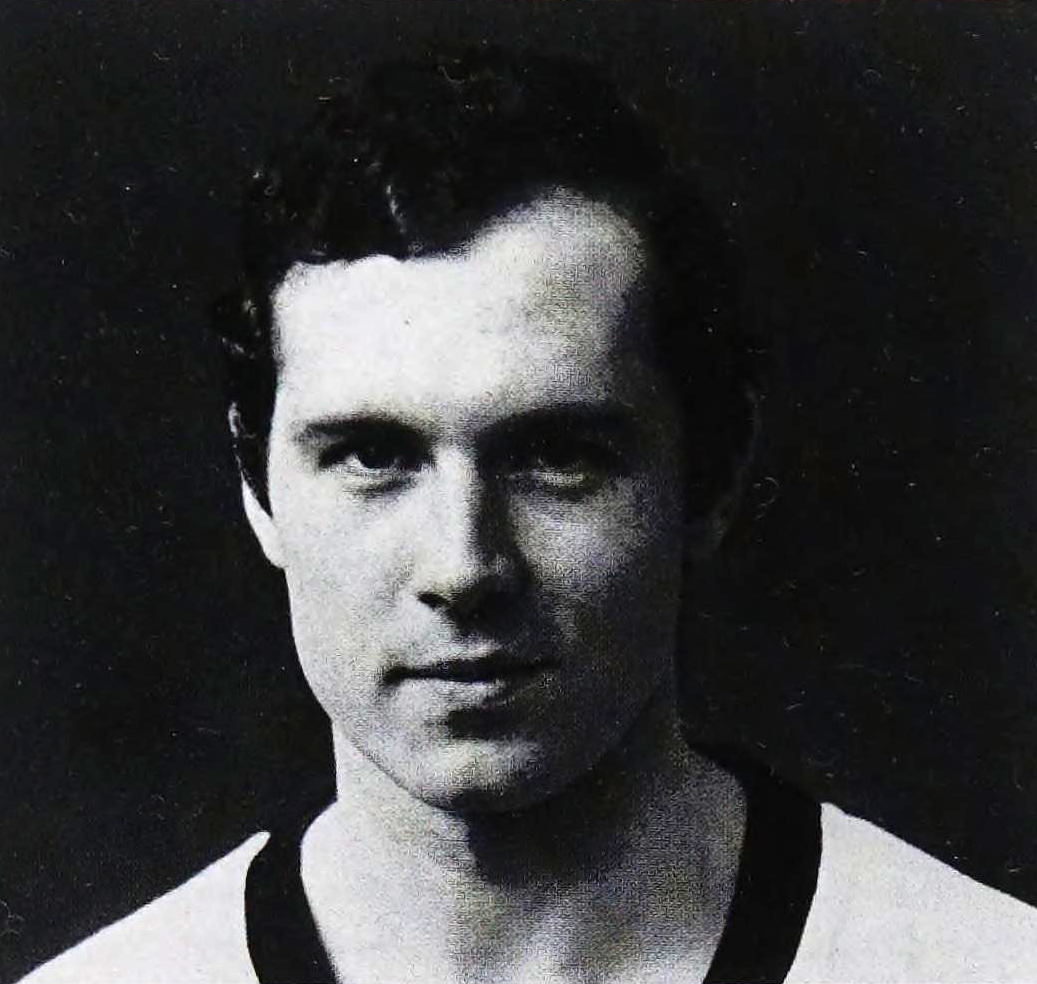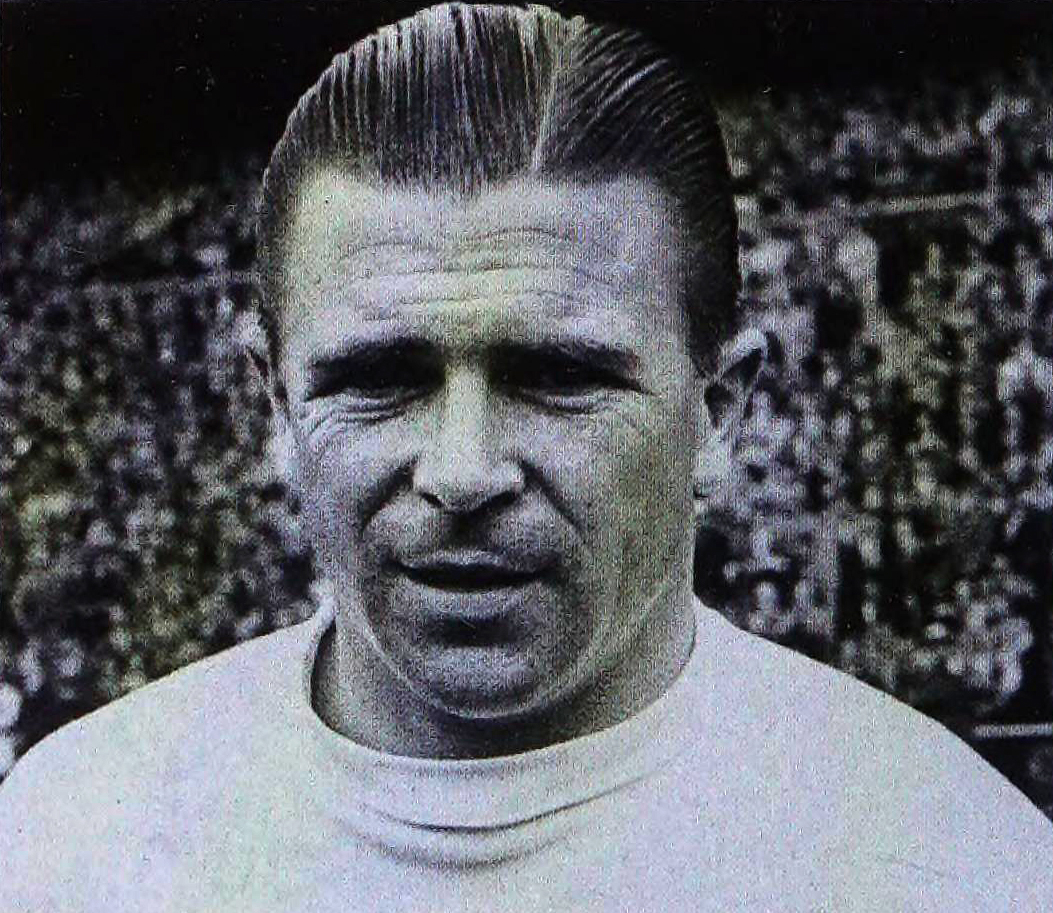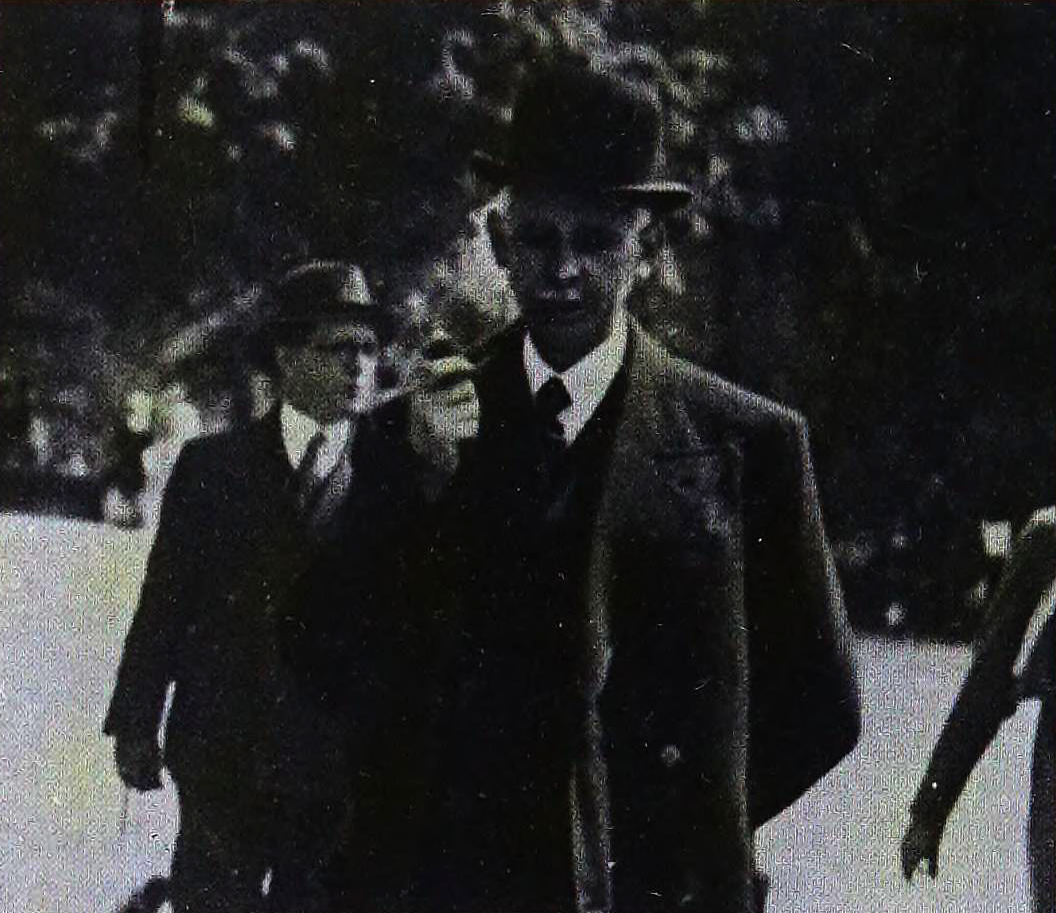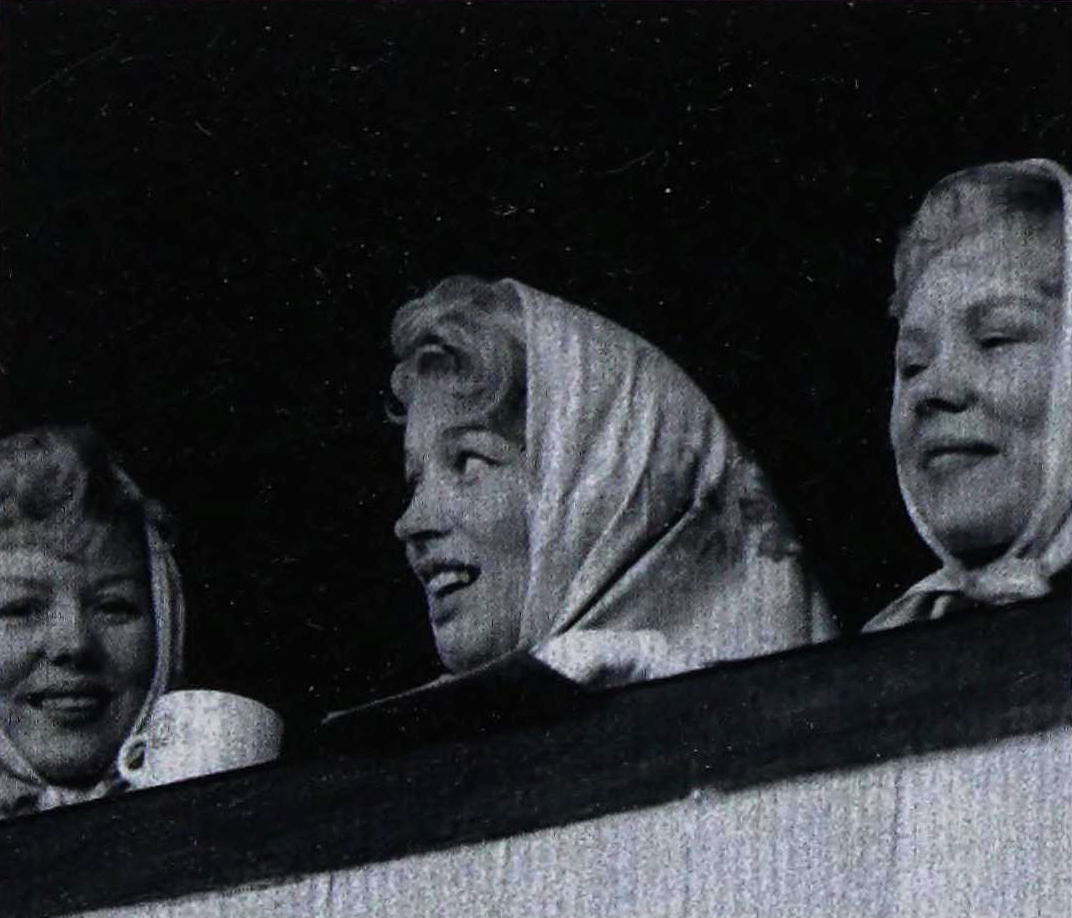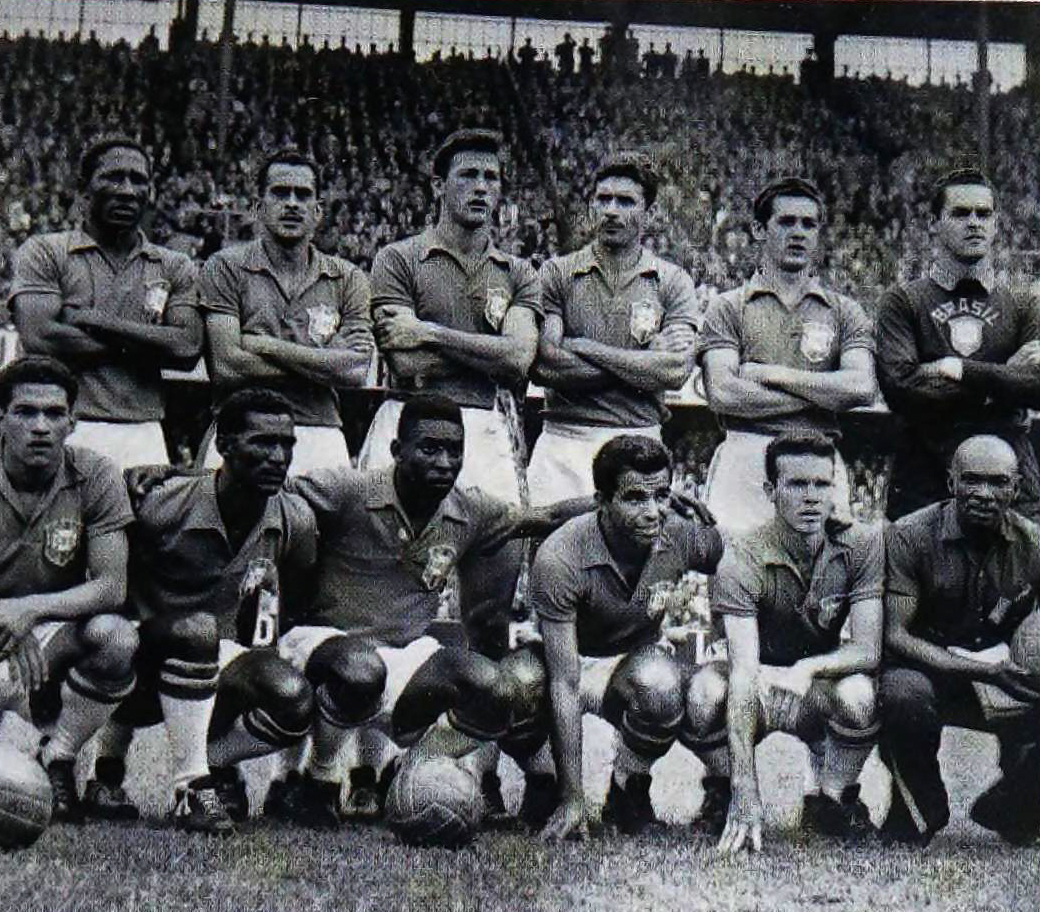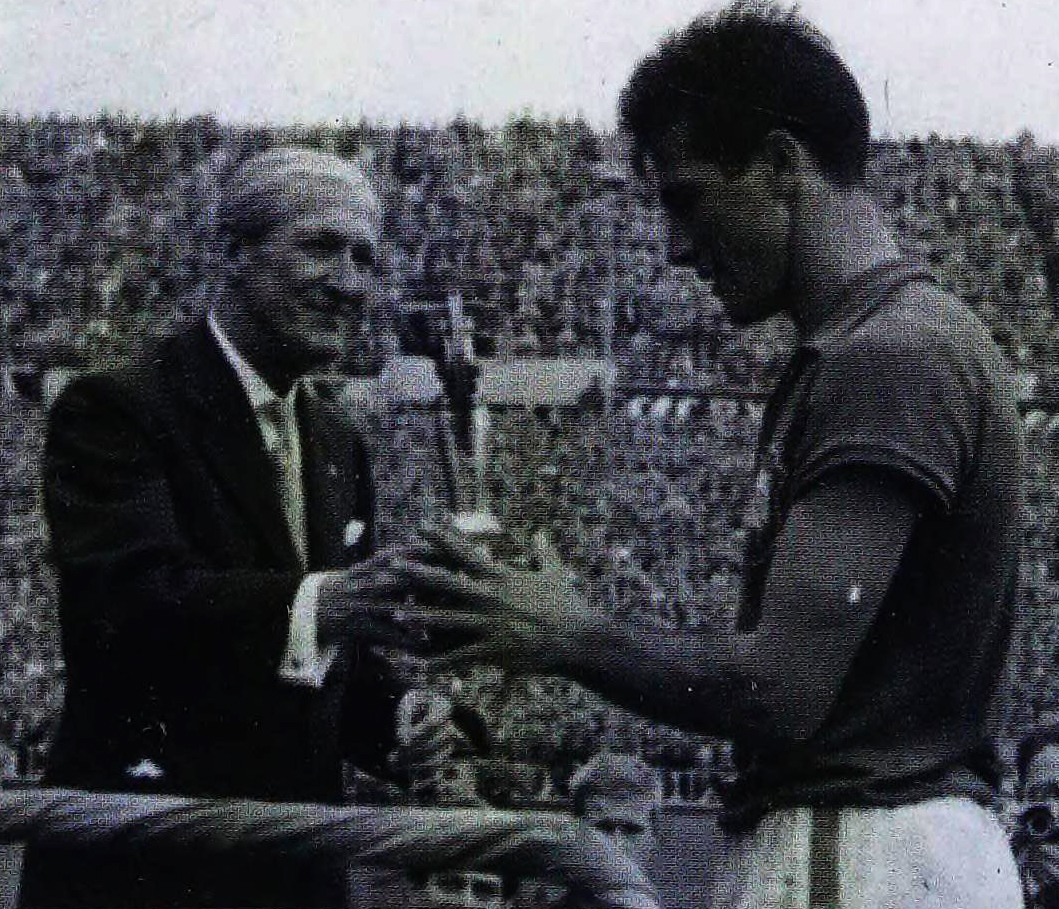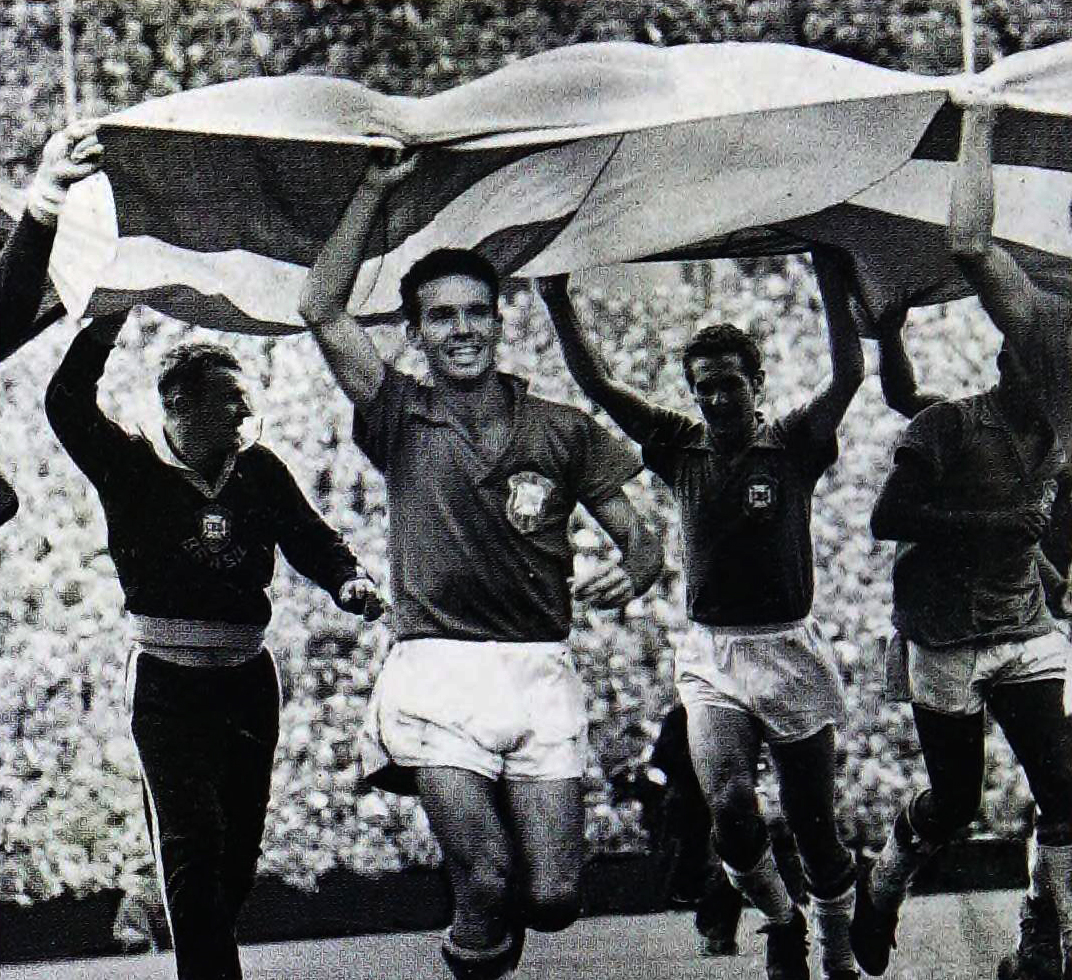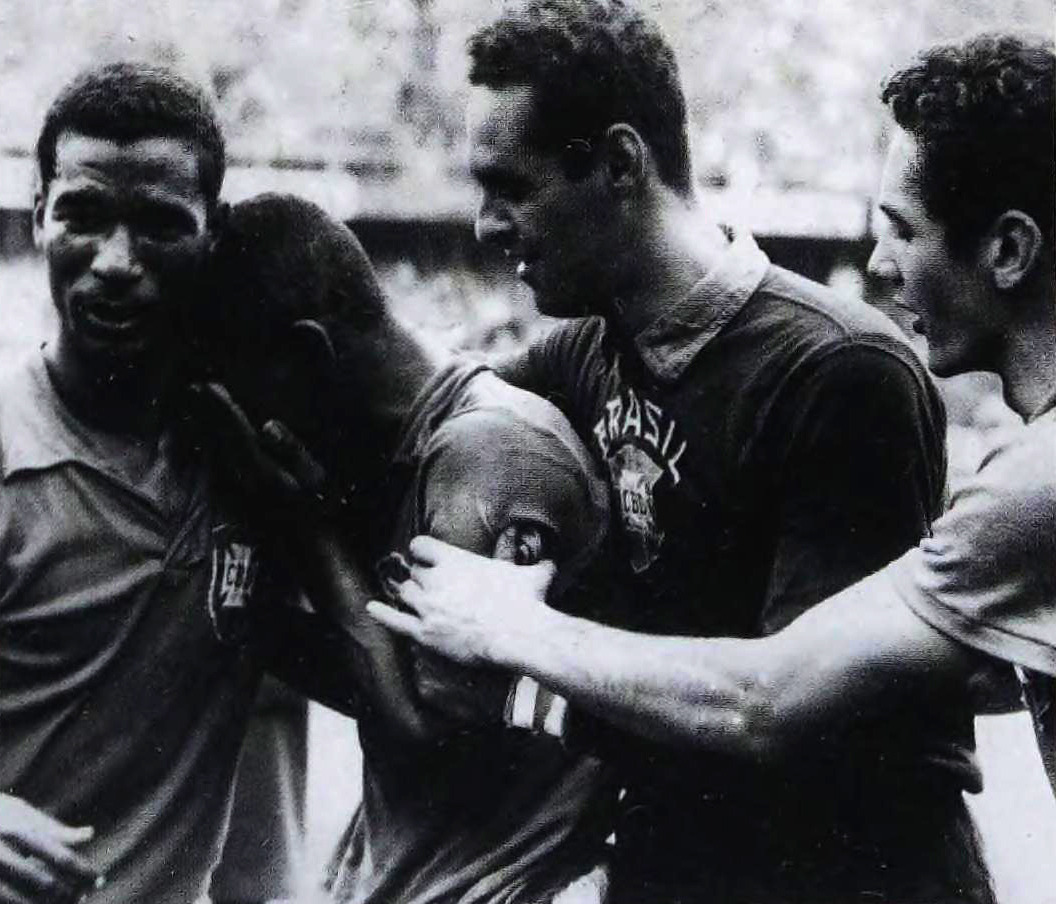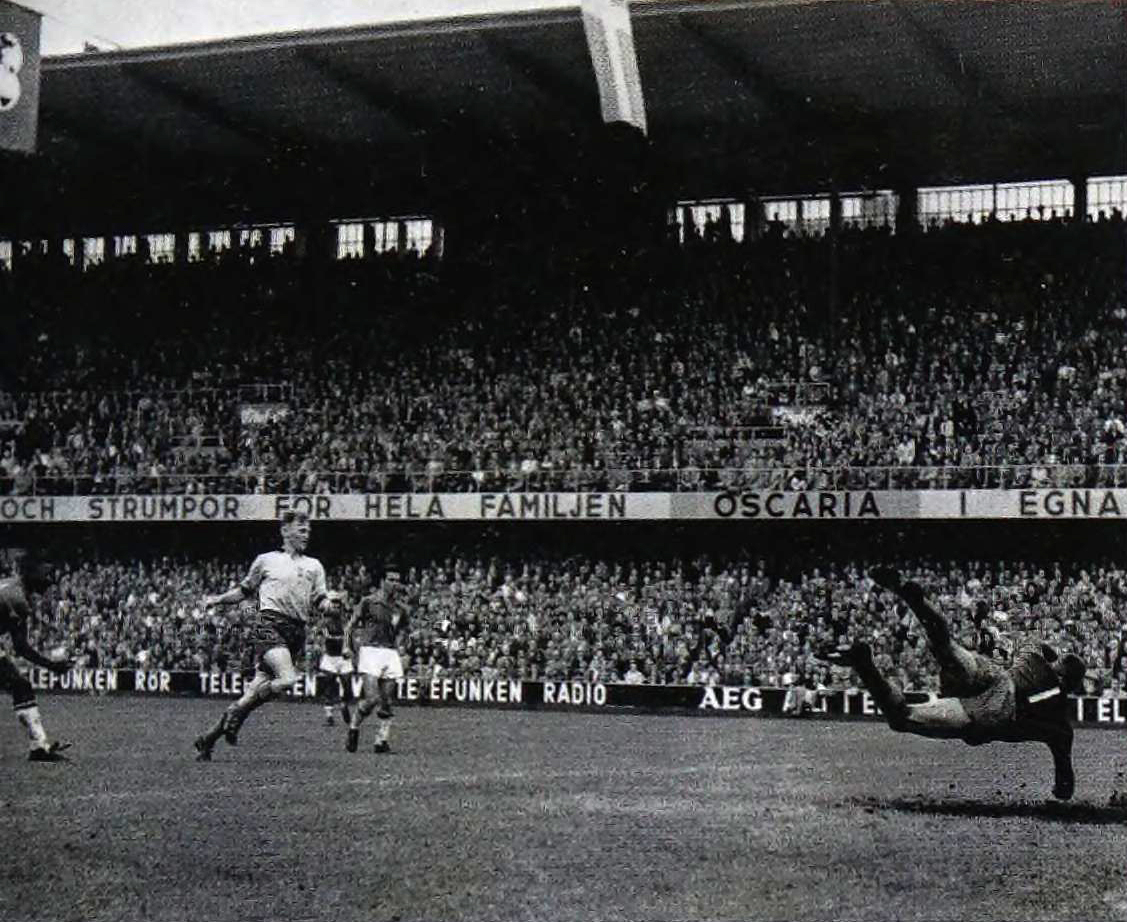2022-12-06
Nr. 359
FOOTBALL LEAGUE WINS COPYRIGHT CASE (1959)
In 1959 the Football League won a landmark legal case in the High Court against pools company Littlewoods, claiming that copyright of the printed fixtures belonged to the clubs. The League were unhappy at how much money the pools companies were making from printing the fixtures each weekend and wanted to share in it.
After winning the case the League ploughed their new funds in to redeveloping many of their team’s stadiums. By 2004 it was estimated that pools revenue accounted for up to 20% of the Scottish League’s income.
Sir John Moores, founder of Littlewoods. The Moores family also have a long standing association with Liverpool football club.
2022-12-05
Nr. 358
BILLY WRIGHT WINS 100TH CAP (1959)
When the England captain Billy Wright led his side out at Wembley to face Scotland in April 1959 he
became the first ever footballer to win 100 caps for his country. Wright, who played at both wing-half and centre-half, had made his debut 13 years earlier and had captained England in three consecutive World Cups in 1950, 1954 and 1958. After reaching his century, Wright, always a Wolverhampton Wanderers man, played five more times for England before abruptly retiring from the game. «England has had no better or more loyal a servant,» said his team-mate Sir Tom Finney. «Billy was as solid as a rock.»
Since 1959 only 3 players have joined Wright in this exclusive club; Bobby Moore, Bobby Charlton, Peter Shilton each passed 100 caps.
2022-12-02
Nr. 357
BECKENBAUER SIGNS FOR BAYERN (1959)
The most illustrious career in German football began when 14-year-old Franz Beckenbauer joined Bayern
Munich in 1959. Five years later Beckenbauer would make his first-team debut for Bayern and help transform the club, captaining them to four Bundeshga titles, four German Cups and three consecutive European Cups between 1974 and 1976. Always both a dominant and graceful presence on the pitch, Beckenbauer had no equal as an attacking sweeper. On the international stage he captained West Germany to the 1974 World Cup and then managed his country to success in the 1990 tournament, to become the first and so far only man to win the World Cup as player and manager.
A young Franz Beckenbauer who went on to become the most accomplished player Bayern Munich have ever produced.
2022-12-01
Nr. 356
PUSKAS JOINS REAL MADRID (1958)
After the Hungarian uprising of 1956 Ferenc Puskas decided not to return home and set off on a tour of Europe and South America with his Honved teammates. However, his refusal to play for Honved in Hungary earned hima two-year ban from UEFA. By the end of this he was 31 and had put on weight, so he found it difficult to find a new club, before Real Madrid decided to take a chance and bring him to the Bernabeu. The gamble paid off immediately with Puskas scoring four hat-tricks in his debut season and helping Madrid to a fourth consecutive European Cup.
After 1956 Puskas could not return to Hungary. Despite his visible weight gain, Real Madrid took a chance on the ‘Galloping Major’.
2022-11-30
Nr. 355
COUNTRIES UNDERWHELMED BY PROSPECT OF NATIONS CUP (1958)
The Nations Cup, the original name for the European Championships, was the brainchild of French Football Federation secretary Henri Delaunay. In 1958 UEFA asked for countries to enter the new tournament, which would be staged in 1960, but the response wasn’t exactly enthusiastic. The four home nations – England, Scotland, Wales and Northern Ireland -collectively rejected the offer and the 1954 World Cup winners West Germany, and the 1934 and 1938 winners Italy, did so too. There were initial fears that the qualifying tournament wouldn’t get the 16 countries it needed to function properly, but some late entries saved the day.
Despite his best efforts Henri Delaunay couldn’t persuade the home nations to adopt his plan fora pan-European tournament.
2022-11-29
Nr. 354
BILLY WRIGHT AND JOY BEVERLEY WED (1958)
The England captain Billy Wright and Joy Beverley, a member of singing group the Beverley sisters, who had several hits during the 1950s, can claim to be football’s first celebrity couple nearly four decades before the Posh and Becks phenomenon. In March 1958 the couple married in Poole, Dorset, and would remain together for 36 years until Wright’s death in 1994. They had tried to keep the details of their wedding a secret, but news leaked out and up to 7,000 fans gathered around the Poole register office.
Joy Beverley, wife of Wolves and England captain Billy Wright, is flanked by her sisters Teddy and Babs in the stands at Molineux.
2022-11-28
Nr. 353
BRAZILIAN AIR FORCE ESCORT THEIR HEROES HOME (1958)
Eight years after having to hastily cancel a World Cup winning party after losing to Uruguay as tournament hosts, Brazil were finally able to celebrate being champions of the world. As soon as the final whistle blew Brazilians flooded into the streets to hail their new heroes and days later the Brazilian team flew home to Rio de Janeiro on the president’s plane with their own fighter pilot escort. On arrival they were greeted by the president before parading the trophy in front of the thousands of fans who lined the streets.
Brazil’s exuberant football had lit up the World Cup and won them many fans. They returned home feted as heroes by their countrymen.
2022-11-25
Nr. 352
BELLINI LIFTS WORLD CUP (1958)
At the end of the 1958 World Cup final the Brazilians were presented with the famous Jules Rimet trophy. As a battery of photographers crowded around captain Luiz Bellini they asked him to lift the small trophy high above his head, so they could get a better picture of this historie moment. Bellini duly obliged and ever since that day each successive World Cup-winning captain has copied this gesture as the ultimate symbol of triumph and, of course, to give the photographers and television cameras the iconic image they need.
Luiz Bellini was about to set an example that all World Cup winning captains have followed since 1958 by lifting the trophy above his head.
2022-11-24
Nr. 351
BRAZIL FLY THE SWEDISH FLAG (1958)
It wasn’t just Pelé. At the end of the final the whole Brazilian squad were consumed with emotion at winning the World Cup for the first time and banishing the painful memory of losing the trophy in 1950. «You only believe in yourself once you’ve won,» said Nilton Santos, involved in his third World Cup. «I really thought, ‘This is a dream. I really am a world champion.»‘
The Swedish people had taken the Brazilians to their hearts, thrilled and inspired by the football they had witnessed. To thank the Swedes for their support the Brazilian players took a large Swedish flag, lifted it above their heads and ran around the pitch. The Swedish crowd got to their feet and applauded the Brazilians’ gesture.
Of Sweden 58 Pelé remembers «It was a very big cultural shock, as this was my first trip abroad … It was a wonderful experience».
2022-11-23
Nr. 350
PELÉ SCORES BRAZIL’S FIFTH GOAL (1958)
In the final minute of the 1958 World Cup final Pelé leapt high into the air and met a cross with a header that looped over Kalle Svensson for Brazil’s fifth and final goal. When the whistle blew moments later the occasion proved too much for the 17-year-old and he broke down in tears. Sobbing uncontrollably he was propped up and lifted onto the shoulders of his team-mates. «I was so excited, because we had won and I desperately wanted to tell my family,»
explained Pelé. «I wanted to phone them to find out if they knew we had won, because it was only on the radio back then.»
Overcome, Pelé cries on the shoulder of Didi as team-mates Gilmar and Orlando congratulate him on his fantastic performance.
2022-11-22
Nr. 349
BRILLIANT VOLLEY SHOWCASES PELÉ’S TALENT (1958)
After scoringa hat-trick in the semi-final against France, much was expected of 17-year-old Pelé in the final against Sweden. He didn’t disappoint. The Brazilian scored two goals, including one that to this day neatly showcases his youthful brilliance in Sweden. Ten minutes into the second half Pelé took Nilton Santos’ cross on his chest to beat Sigge Pading, lifted the ball over Bengt Gustavsson, before volleying the ball past Kalle Svensson. The goal put Brazil out of sight at 3-1 and they would finish the game as 5-2 winners.
Seventeen-year-old Pelé crashes Brazil’s third past Sweden’s goal keeper Kalle Svensson. It was the pick of Brazil’s five goals.

